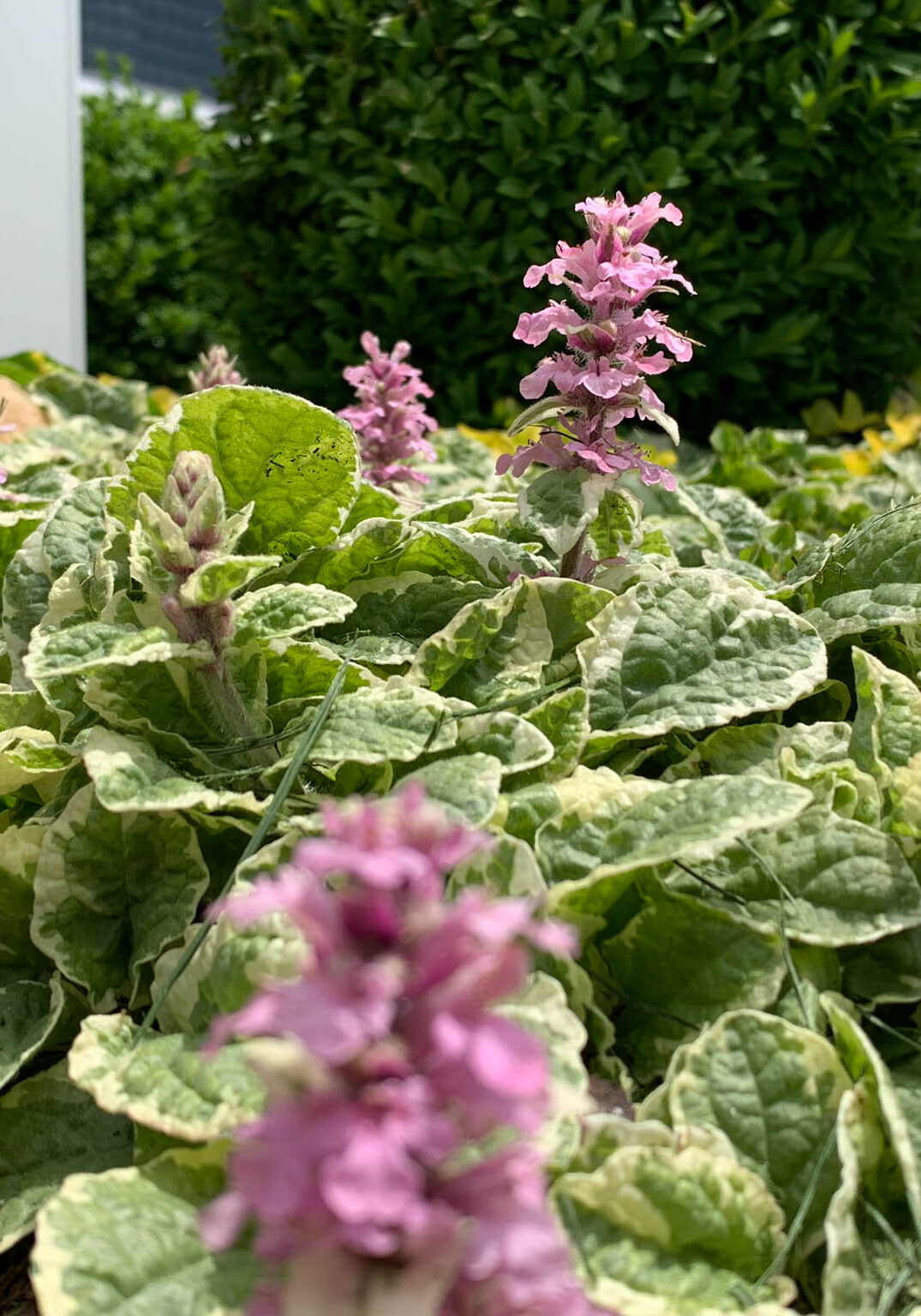Reliable Landscaping Services with a Communication Promise in Mt. Lebanon, PA
Highly-Trained and Licensed Professionals Use a Science-Based Approach for Exceptional Lawns and Landscapes
Mt. Lebanon, Pennsylvania, is a picturesque town filled with mature trees, well-kept lawns, and customized outdoor living spaces. These life-enriching outdoor spaces provide all the joys of nature—and the satisfaction of outstanding curb appeal—with functional features for the day-to-day.

At Dream Greener Lawn & Landscape, we're proud to offer professional landscaping services that will allow you to spend more time enjoying your home and less time working in your yard. Our lawn care, lawn treatment, landscape maintenance, and tree & plant health care services are customized to meet your property needs and your budget. If you're looking to revamp your backyard with a custom patio, fire pit, retaining walls, walkways, landscape lighting, drainage solutions, and more, our landscape design and installation team will work closely with you to create a functional space you can enjoy.
We even have our own nursery, where we supply the healthy plants we use for our landscaping projects in Mt. Lebanon, Pennsylvania, and throughout the area. We stock a wide selection of mulch, stone, and other hardscaping materials, as well, to simplify the supply process and streamline your project experience. This helps us control the timeline and ensure the quality of the finished product meets our high standards for excellence. Our analysis isn’t limited to only softscapes, we can also provide an analysis of your existing hardscaping features as well.
Our Communication Promise is our guarantee that you'll hear back from us within 1 hour during business hours and within 24 hours if you leave a message during non-business hours. We value your time and want to keep your project moving forward, so you can start enjoying the outdoor space you've been dreaming of.
Fill out our contact form to learn more about our full range of landscaping services in Mt. Lebanon, including lawn and plant health care, tree care, landscape maintenance, outdoor living design and installation, snow removal, and more.
Dream Greener Educational Resources
We have a series of E-Books to help you understand more about lawn and landscape maintenance that we'd like to share with you.
Complete this form to request your free books today!
Technology-Forward Lawn
and Landscaping Services for
Precise Results
With in-depth knowledge and advanced technology, we approach every project with care, attention to detail, and a commitment to your satisfaction. We're passionate about the work we do and look forward to creating and maintaining beautiful, life-enriching outdoor spaces for you with a variety of personalized services:
With a registered landscape architect on our team, we can manage larger, more complex projects for our clients. We can provide full-scale site analysis, design, and permit coordination and filing.
Landscape Architecture
Our collaborative landscape design process starts with a Dream Meeting, where we get to know your property and your wishes. We'll provide expert recommendations based on your budget and your needs, and we'll pull it all together with a detailed proposal for your approval. Visit our Landscape Design page to learn more.
Landscape Design
Our landscape installation crews specializes in a diverse array of services, such as sod installation, mulch application, seasonal plantings, drainage solutions, and sustainable landscaping. We prioritize safety, efficiency, and property respect in all our projects. Visit our Landscape Installation page to learn more.
Landscape Installation
Elevate your outdoor space with our range of services, including paver patios, fire pits, seating walls, custom stonework, landscape lighting, water features, rock gardens, and boulderscapes. We specialize in crafting beautiful and comfortable outdoor areas. Visit our Outdoor Living page to learn more.
Outdoor Living
We offer comprehensive year-round property care services, including fine garden maintenance, mulch application, leaf removal, tree and shrub pruning, and seasonal cleanups. Let us take those outdoor chores off your to-do list and keep your property looking its best all year long. Learn more about Landscape Maintenance.
Landscape Maintenance
Our professional lawn care services include fertilization, weed control, grub and insect control, aeration, overseeding, and mowing. With a meticulous scientific approach, we set the industry standard for precision and excellence in lawn care. Visit our Lawn Care page to learn more.
Lawn Care
We use integrated pest management practices to maintain an ecologically friendly environment for beneficial insects while controlling damaging pests. With a certified arborist on our team, we provide expert care and fertilization for trees and shrubs, ensuring their health and vitality. Visit our Tree and Plant Health Care page.
Tree and Plant Health Care
We provide responsive snow plowing and ice removal services to both residential and commercial clients, ensuring safe and usable sidewalks, stairs, driveways, and parking lots throughout the winter season. Visit our Snow page.
Snow and Ice
Landscape lighting enhances the beauty and functionality of your outdoor space by illuminating key features like pathways, gardens, and architectural elements. Read more about our landscape lighting.
Landscape Lighting
Our pest control services provide effective solutions to keep your home safe from unwanted pests like mosquitoes, ticks, and termites. Using eco-friendly treatments, we protect your property and loved ones while ensuring long-lasting results and peace of mind.
Pest Control
Beautiful Spaces Happy Clients
Your project is personal to us, and it makes us happy to know you appreciate the care we take to ensure everything about your landscape is just right for you. Learn more about our work in the Mt. Lebanon area by reading what our clients have to say:
A Friendly, Hassle-Free Experience
from Start to Finish
With our years of experience in Mt. Lebanon, Pennsylvania, we've developed a streamlined process to take any project from start to finish. This is how it works:

Rosslyn Farms
Rosslyn Farms
Imperial
McDonald
Wexford
Moon Township
Professional Landscaping Services in Mt. Lebanon, PA, and the Surrounding Area
At Dream Greener Lawn & Landscape, we provide residential landscape maintenance and lawn care, outdoor living design and installation, small tree services, plant health care, pest control, and snow removal in the Mt. Lebanon and Pittsburgh area. We work with homeowners and select business owners and property managers in the following communities:
- Mt. Lebanon, PA
- Upper St. Clair, PA
- Peters Township (McMurray / Venetia), PA
- Presto, PA
- Southpointe, PA
- South Fayette Township, PA
- Rosslyn Farms, PA
- Bethel Park, PA
- Canonsburg, PA
- Washington, PA
- Oakdale, PA
- Pittsburgh, PA
- Sewickley, PA
- South Strabane Township, PA
- South Park Township, PA
- Robinson Township, PA
- Finleyville, PA
- Moon Township, PA
- Edgeworth, PA
- Jefferson Hills, PA
- Eighty Four, PA
- Cecil, PA
- Imperial, PA
- McDonald, PA
- Wexford, PA
Carnegie, PA
An Outdoor Career with Competitive Pay, Perks and a Supportive Work Environment
At Dream Greener Lawn & Landscape, we've cultivated a culture of courtesy and kindness, where all team members are heard and valued. We support your personal and professional growth with top pay, health insurance, paid vacation and personal days, ongoing training, and more. If you're friendly, hard-working, and passionate about advancing your career in the outdoor space industry, we hope you'll apply today.
Visit our Careers page to learn more and fill out our application form.
It's Time to Have the Outdoor Space You're Dreaming Of
At Dream Greener Lawn & Landscape, we want to make it easy for you to enjoy a truly beautiful, functional outdoor space in Mt. Lebanon, Pennsylvania, and throughout the area. Whether that means a green lawn, intricate garden beds, healthy plants and trees, or an entire outdoor living area with a paver patio and fire pit, our team has the training, equipment, and scientific knowledge required to bring it to life.
When you work with us, you'll enjoy responsive communication and reliable service, on time and according to your wishes. It's a hassle-free experience that results in an exceptional landscape. Fill out our contact form to get started today.
